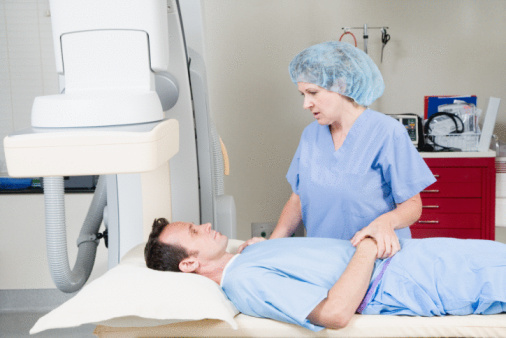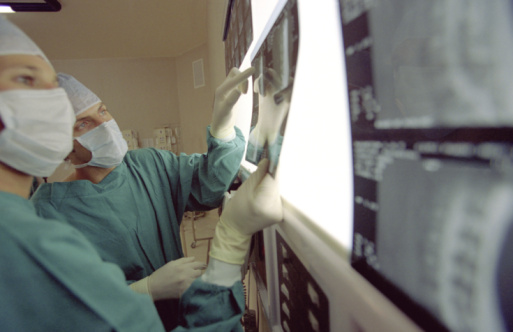

As a radiation therapist you are an essential part of a healthcare treatment team utilizing radiation therapy as a treatment. There are a number of aspects that make this a rewarding career and may give you the opportunity to travel as well as apply your needed skills. Radiation therapy is commonly used in the treatment of cancer, but is also used in the medical treatment of other diseases such as hyperthyroidism or acoustic neuroma.
As part of a cancer treatment team you will also likely interact with the following specialists:
A radiation therapist will preform a number of different activities such as:
To be successful as a radiation therapist, you need to possess a number of different skills and qualities. Because the field is technology driven, complex, and focuses on sick medical patients, common sense, problem solving, and critical thinking skills are essential. You will need to have very good oral and written communication skills to effectively communicate with your healthcare team.
You will need to be comfortable with technology and also be able to follow complicated protocols. Adapting to new technology and change is also important as radiation therapy is an evolving field of medical science with frequent technology changes.
However, medical and technical competency is really just an essential entry level requirement. You must also be able to demonstrate compassion and sensitivity to patients with both physical and psychological complaints due to their severe and sometimes terminal medical illness. You will also need a different, but equally important interpersonal skill set to connect with your patient and their families.
Unlike other therapy positions that may allow for a job path through on the job training, becoming a radiation therapist requires formal training.
While you can become certified radiation therapist by completing a 12 month certificate program, many employers today prefer radiation therapists who have completed either an associate’s bachelor’s degree in radiation therapy. In 2015 American Registry of Radiologic Technologists will require an associate or more advanced degree as a prerequisite for certification
Radiation therapy degree programs include a number of different didactic areas including:
Licensure is required in most states and the exact requirements vary as each state regulates licensure. In general, employers prefer to hire therapists with degrees as opposed to certificate only applicants.
Some radiation therapists are paid by the hour and others are paid a salary. Annual compensation averaged $74,980 in 2010 with 10% making more than $110,000 and 10% making less than $51,000.
While radiation therapy positions are similar to other technologist positions such as nuclear medicine technologists or ultasonographers, salaries are general higher. Part of this is likely due to fewer total positions available throughout the United States. You will need to follow stricter safety standards to ensure that you do not expose yourself to harmful radiation. Your general patient care training may be similar to other technologist specialties, but your main educational focus will center around radiation as a treatment modality.


As a traveling radiation therapist you will have the ability to manage time commitments by taking longer or shorter assignments as well as possibly taking on administrative roles. Travel medicine also provides you with the opportunity to grow professionally by learning new techniques, procedures, and policies that make radiation centers successful.
By Pat F. Bass III, M.D., M.S., M.P.H.
Pat Bass
Pat is a board certified General Internist and Pediatrician He has served as a reviewer for leading national publications including Pediatrics, the Journal of General Internal Medicine and the Annals of Internal Medicine. Pat is also the asthma guide to About.com, a New York Times Company. Learn more about Pat on Google+